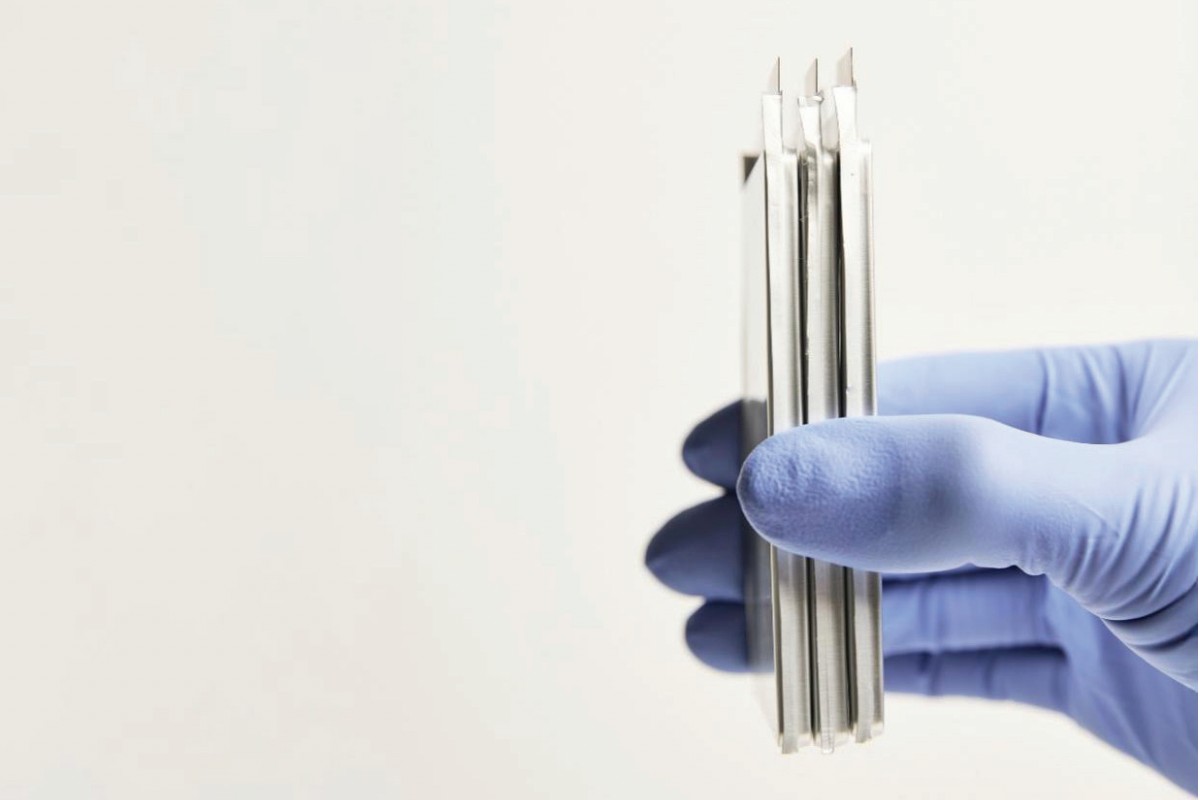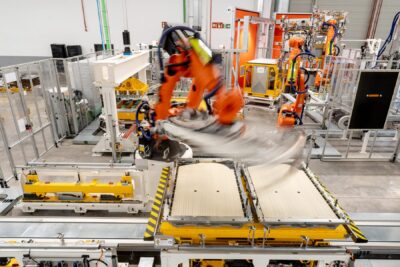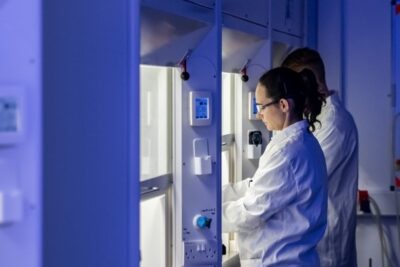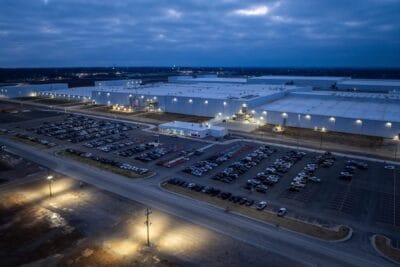QuantumScape starts building its B-samples and announces management change
The B-sample cell called QSE-5 is set to become QuantumScape’s first commercial product – with a capacity of 5 Ah and an energy density of over 800 Wh/l. As QuantumScape writes in its current report for the third quarter, small-scale production and delivery of these cells for tests to customers in the automotive sector has now begun. Volkswagen is also likely to be one of the recipients: This is because its battery subsidiary PowerCo is aiming to industrialise solid-state batteries and concluded a deal with QuantumScape in July 2024 to this end. The aim is a licence partnership for the subsequent series production of solid-state cells on a gigawatt-hour scale.
“QSE-5 represents an important milestone for our company and the battery industry as a whole,” comments QuantumScape in the annual report. “These cells are, to the best of our knowledge, the first anode-free solid-state lithium-metal cell design ever produced for automotive applications. This cell is capable of simultaneously delivering exceptional performance with respect to energy density, discharge power, charging speed, low-temperature performance, and safety.” However, the American company does not want to raise expectations too high: QuantumScape has announced extensive product tests ‘that will take many months’. Additionally, the company writes: “We have to substantially improve on metrics such as cell reliability, yield and equipment productivity, among others.”
Energy density of 844 Wh/L
The company describes the QSE-5 as a solid-state battery cell measuring 84.5mm x 65.6mm x 4.6mm, which can be charged from ten to 80 per cent in under 15 minutes at 45 degrees Celsius. The developers state an energy density of 844 Wh/L or 301 Wh/kg and a discharge rate of up to 10C. The cell is also said to work at low temperatures of up to -30 degrees Celsius.
The QSE-5 has already been preceded by two cell prototypes at QuantumScape: the company had already delivered the ‘A0’ cell samples to car manufacturers for testing in December 2022. The so-called ‘Alpha-2’ cells followed in March 2024. In addition to the cells themselves, the US company is also working on a manufacturing process suitable for mass production. The so-called ‘Raptor production process’ for the small series of the QSE-5 is said to have been implemented in the meantime. The ‘Cobra production process’ is still being developed in parallel for the large-scale production of the solid-state electrolyte separator and should be available in 2025.
QuantumScape dedicates a separate passage in its annual report to the deal with PowerCo, which was concluded in the third quarter, and describes it as a landmark agreement. The first phase involves intensive collaboration, “with PowerCo contributing skilled personnel to aid the industrialization of the QSE5 technology platform,” the company writes. “Upon satisfactory technical progress in this phase, QuantumScape will grant PowerCo a license to mass produce battery cells based on QuantumScape’s technology platform in exchange for royalties, including a $130M prepayment.”
Joint development activities between groups from both sides are currently taking place at QuantumScape’s facilities in San Jose. Both sides already know each other well: the Volkswagen Group has been involved with QuantumScape since 2012 and is one of the main investors in the technology start-up. The companies have also maintained a joint venture since mid-2018, but this was replaced by the new agreement in July. This is because PowerCo is now in the lead and no longer Volkswagen. It was also the battery subsidiary that confirmed QuantumScape’s ‘encouraging results’ with its solid-state battery cells at the beginning of the year after months of testing in its own laboratories. In retrospect, this was an early public commitment to the company’s technology.
The core of the future collaboration is a non-exclusive licence, on the basis of which PowerCo intends to enter into the large-scale production of solid fuel cells. According to the Wolfsburg-based company, whether this will actually happen depends on technological progress and certain licence payments. Both parties have agreed that PowerCo may produce up to 40 gigawatt-hours per year using QuantumScape technology, with the option of doubling production capacity. However, the Volkswagen subsidiary has not specified a time horizon.
Dennis Segers replaces Jagdeep Singh
Meanwhile, income from licences is an essential part of QuantumScape’s business model. However, in view of the capital-intensive development, the company initially expects a loss of 280 to 300 million US dollars in the current year. At the same time, the transformation from a pure R&D company to a player with product and industrialisation ambitions will also be reflected in terms of personnel: Jagdeep Singh, co-founder and CEO of the company founded in 2010, will step down from the Executive Board at the end of 2024 after almost 15 years, according to the annual report. His position will be taken over by Dennis Segers, most recently CEO of Xilinx, a provider of programmable logic solutions, and President of Matrix Semiconductor, among others.
QuantumScape is also announcing who will replace Frank Blome on the Board of Management from Volkswagen. Blome resigned from the QuantumScape Board of Directors in the summer. He will be replaced by Dr Günther Mendl, Head of the Battery Competence Centre at Volkswagen AG since 2022.
quantumscape.com (PDF)





0 Comments